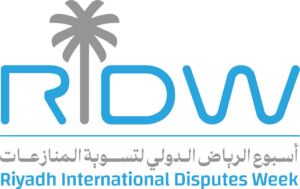Expert witness evidence plays a pivotal role in the outcome of arbitrations, particularly in construction disputes. Rarely do construction disputes turn on significant differences between the parties’ versions of the facts, which are flushed out under dramatic, Boston Legal-style cross-examination. More often, it is the skilful application of settled facts by the parties’ legal counsel and experts that wins the day.
Impartiality and Independence of Experts
Various rules on the use of party-appointed experts in arbitration, e.g., the IBA Rules (2020) and the CIArb Protocol (2007), make clear that an expert’s role is to assist the arbitral tribunal (“tribunal”), and in so doing, to act with impartiality. However, no one in an arbitration, including the members of the tribunal, are under any illusion that an expert is appointed to do anything other than to support their client’s case.
Production and use of credible expert evidence require more than simply following the applicable rules. An experienced tribunal will quickly sense when an expert crosses the line between acting as an independent expert and acting as an advocate, despite apparent adherence to the rules. A party’s counsel plays a crucial role in the selection, appointment, and instruction of expert witnesses.
Expert Selection
It goes without saying that, when selecting an expert, you need a delay expert to give evidence on delay and a quantum expert on quantum. Selection of the appropriate discipline alone, however, rarely leads to high quality expert evidence.
Experience that is specific to an industry and/or a region can significantly enhance the credibility of expert evidence. For example, if a dispute relates to piping on a Middle East oil and gas project, even a non-technical expert’s evidence will be considerably more persuasive if she or he genuinely understands the industry-specific peculiarities of installing piping on these types of projects. This is particularly relevant in circumstances where any member of the tribunal hails from that industry, who can quickly sniff out an expert trying to muddle their way through, without the experience and knowledge they require.
Lawyer’s Role
Having selected and appointed a suitable expert witness, a lawyer’s role in instructing and proactively managing that expert is crucial. A quality litigator knows how to extract persuasive opinion evidence from an expert to support her or his client’s case without compromising the expert’s impartiality.
There is, however, a fine line between opinion and argument. A lawyer should ensure that the expert does not cross that line to become an advocate. For example, an expert is supposed to apply the terms of the contract and not to interpret those terms or stray into legal argument.
A lawyer should also provide clear instructions to the expert on contentious legal issues and frame the questions on which the expert offers opinions. This interplay between a lawyer and an expert is one of the most important relationships in a team, which may dictate the outcome of any arbitration.

We look forward to attending the SCCA24 Conference!
________________________
To make sure you do not miss out on regular updates from the Kluwer Arbitration Blog, please subscribe here. To submit a proposal for a blog post, please consult our Editorial Guidelines.


